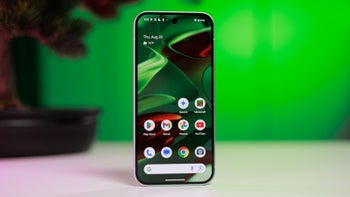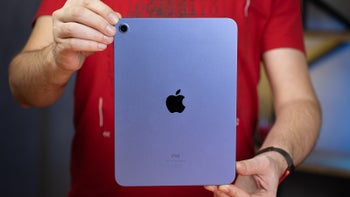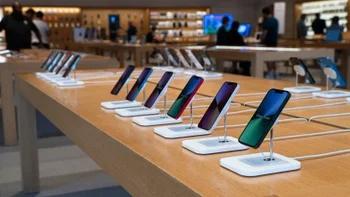Google Now's intelligent push shows Siri the future
This article may contain personal views and opinion from the author.

Last week, Google unveiled its upcoming Android update 4.1, Jelly Bean, which added a number of improvements to the system, but none caught our eye more than Google Now, which is the product we have been anticipating for a couple of years now, and one that we knew would finally come soon back when Google announced it would unify its privacy policies. Many people jumped on the chance to stack up Google Now with the closest competition: Apple's personal assistant, Siri. The trouble with that comparison is that although Google Now is built on its Voice Search app, and includes a robo-voice to give you answers, the real power of the platform has nothing to do with the ask-and-answer dynamic that defines the Siri experience (and all other voice command experiences so far.) The real power of Google Now lies with intelligent push.
Differing aims
Siri is marketed as a personal assistant because of hooks into your calendar and such, but more than anything else, Siri is a voice-powered search platform. If you want the weather, you ask. Sports? Just ask Siri. Directions? Ibid. Apple has done this for a variety of reasons. Firstly, speech recognition finally hit a point where it was possible to create software that understands natural language, and can turn it into an accurate response. We no longer need to worry about speaking in keywords, we can just say what is natural, and the software takes care of the rest.

Lastly, Apple made Siri because Apple didn't have the resources or understanding of the search business to make the next step in the chain (which - spoiler alert - could very well be Google Now.) Not to mention, Apple doesn't like to creep out its users by showing off just how much it knows about you.
Google has been a search company for around 16 years now (although it has only been known as Google for 14 years), so if there is one thing we'd expect the company to understand, it's search. Google sees more than most that search is not the way forward, and Google is not shy about creeping you out. Search will always be useful, but useful doesn't mean necessary. It's necessary to use search to find answers to questions, or learn something new. It's not necessary to use search to perform daily tasks, or find things that should be at your fingertips anyway. For these things, you shouldn't need to search, it should simply be given to you, even if that presentation of knowledge makes you uneasy, because the real aim of Google Now is to intelligently push relevant information to you, without you asking for it.
Apple has your location data and calendar, and is building a search history with Siri, but in general, Apple just doesn't have as much personal data on you as is needed to provide intelligent push. But, make no mistake, Apple is definitely working towards it. On the other hand, Google has your search history, your e-mail, calendar, location data (plus place reviews), purchase history, and more and more +1 info. Google knows what you like, where you like it, and when. And, now that Google can put that all together because of the new unified privacy policy, we get the vast potential of Google Now.
Intelligent Push
The basic difference is this: Siri demands that you ask for something before you can get it. Google Now intends to learn what you want, and understand when you want it, and have it ready for you. Siri is always an active interaction. Google Now wants to bring the information to you without being asked. Of course, we have to put in words like "intends" and "wants to" because we haven't seen enough of Google Now to know if it will work as planned, but the idea remains the same.

With that in mind, we're getting Google Now, which will give you the weather every day, as well as appointment reminders, travel information, sports, and place info, all without requiring that you ask for that info, at least after the initial learning period of course. The possibilities of a system like this can easily lead to a much more useful "personal assistant" than what Siri can currently offer if for no other reason than because the information is passively presented to you. If nothing else, this covers Google's obsession with speed, because it is always faster to have information given to you, than to have to seek it out first.
The one trouble that may occur with Google Now is the same that Siri would face if it were to take the same route (which we fully expect to happen): the learning process requires use.
Learning to be intelligent
By this, we mean that in order for Google Now to learn that you have work at a certain time, or appointments, it helps if you use Google Calendar to arrange your schedule. Google can't know about an upcoming flight you need to take unless you either A) put it in your calendar, or B) do a Google search for that flight. This sort of thing is basic and completely understandable for a service like this. Where it gets odd is in gathering other information. For example, if you don't use Google Maps to get your travel information, Google Now won't know your preferred method of travel. If you use an app to get your public transport info, it becomes much harder for Google to learn that you prefer taking the bus. Perhaps that sort of thing could be learned by matching your location data to bus/train routes and times, which we're hoping is the case, but it's unclear right now. Similarly, if you use an app to get your sports scores, Google won't learn that you're an Oklahoma City Thunder fan, and won't know to give you those scores and news when you pull up Google Now.

No doubt there will be more in-depth controls coming, which should allow you to simply give Google the relevant info one time, and then the info will be pushed accordingly, but as always, a passive learning experience will always be better. Google provides the best search results because it learned from our usage rather than being told what we want. The same applies here, because no matter how quick and easy, people hate taking time to do things.
Google vs Apple (vs Microsoft)
As we said, it is pretty much a certainty that Apple is also working on ways to passively provide relevant information to you. Apple would love to give you restaurant or shopping recommendations based on where you are and what you like, but Apple still needs to build up the database on what you like. Google Now is simply another point along the well-worn path in this dance between the two companies. Google will be the first out of the gate with a product (Voice Search, dictation, intelligent push), and Apple will bring its own version when it feels like it can provide a sufficiently "Appley" product. The same will be the case with Google Now, and intelligent push. There is almost no doubt that eventually Apple will launch a product that provides a similar service, the real question is how much Google Now will be able to grow before that happens.
Since Apple has already announced iOS 6, the earliest we'd see Siri begin to provide intelligent push data would be next fall with iOS 7. Of course, given the update bottlenecks in the Android ecosystem, there's no guarantee that Google Now (which is only available on Jelly Bean) will even be on the majority of Android handsets by then. No doubt, Google Now's feature set will grow between now and then. We'd expect more location-based shopping suggestions (i.e. Google Now knows you've been searching for sneakers, and points you to a store nearby that's having a sale), or things-to-do suggestions (providing movie times for a film you've +1ed). Google Now certainly has room to grow, especially given that it seems like the product only uses location, web history, and calendar data right now .Google has far more data than that to draw upon, and is gathering more every day.
Apple may not have all of the data yet, but Apple Maps will go a long way to give the company place data, and preferences, and the more Siri can do, the more search info the company will get from the software. All of that will fold back into any intelligent push system. This will still leave major gaps in Apple's understanding of who you are and what you like. Even Microsoft, which has no such system anywhere on the horizon could have a better path to giving relevant information by leveraging its strategic partnership with Facebook (assuming it could convince users to opt-in to such information sharing). Theoretically, this means that if you're a Google+ user, Google Now will eventually be even more valuable to you.
Regardless, active search is likely to lose focus as the main way of getting information, and will in many ways be supplanted by passive intelligent push of information. Google Now is the proof of that, and because of it, Google Now should become a far more useful platform than any simple voice search/voice command/personal assistant. It doesn't surprise us in the least that Google is the first out of the gate with this product, but Apple won't be too far behind. We fully expect to see Siri evolve as well, although Apple will need more outside help to make it work as well as Google should be able to.













Things that are NOT allowed: